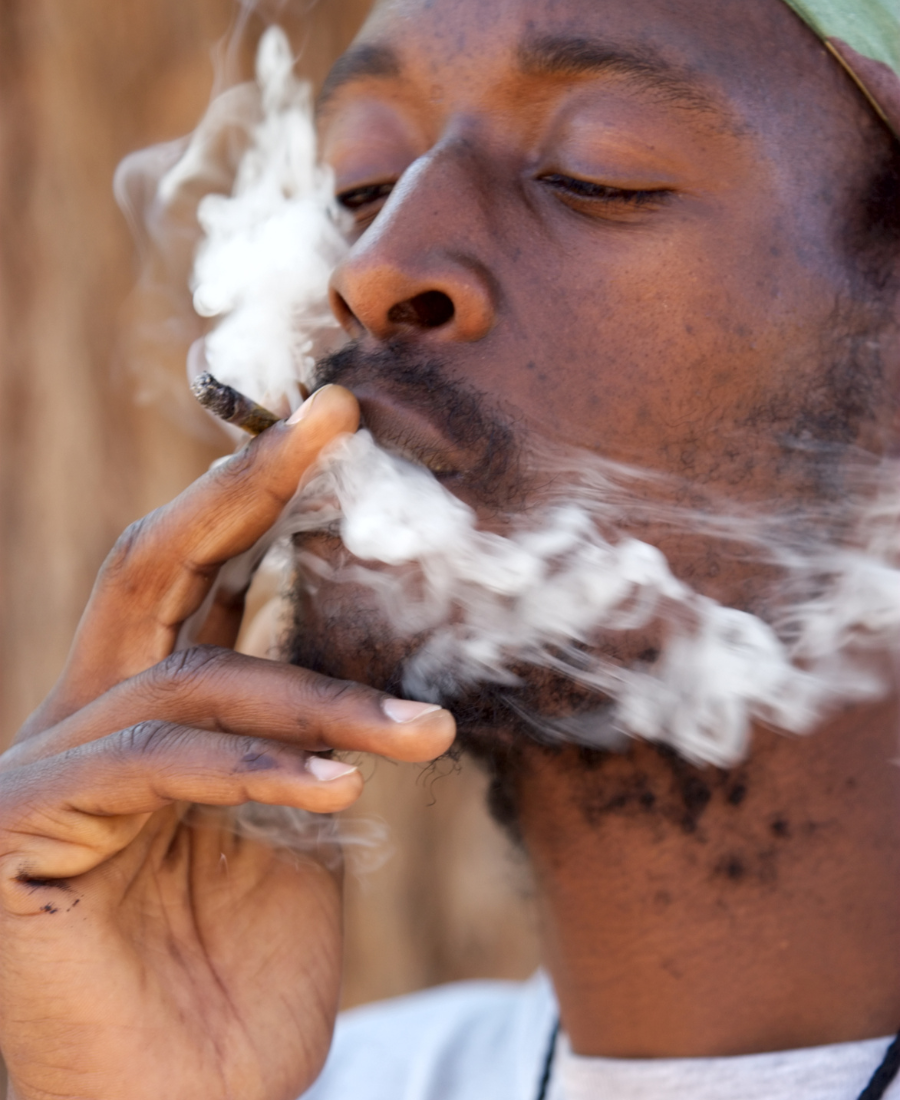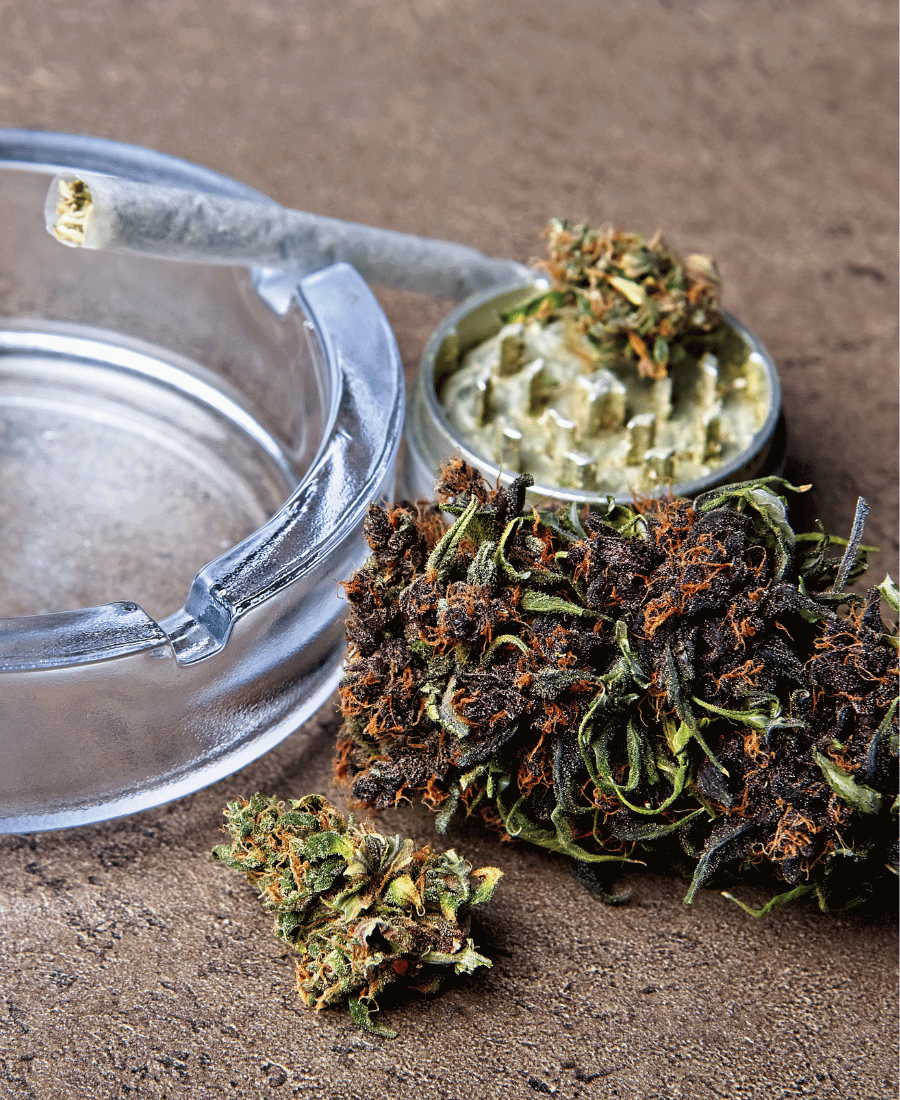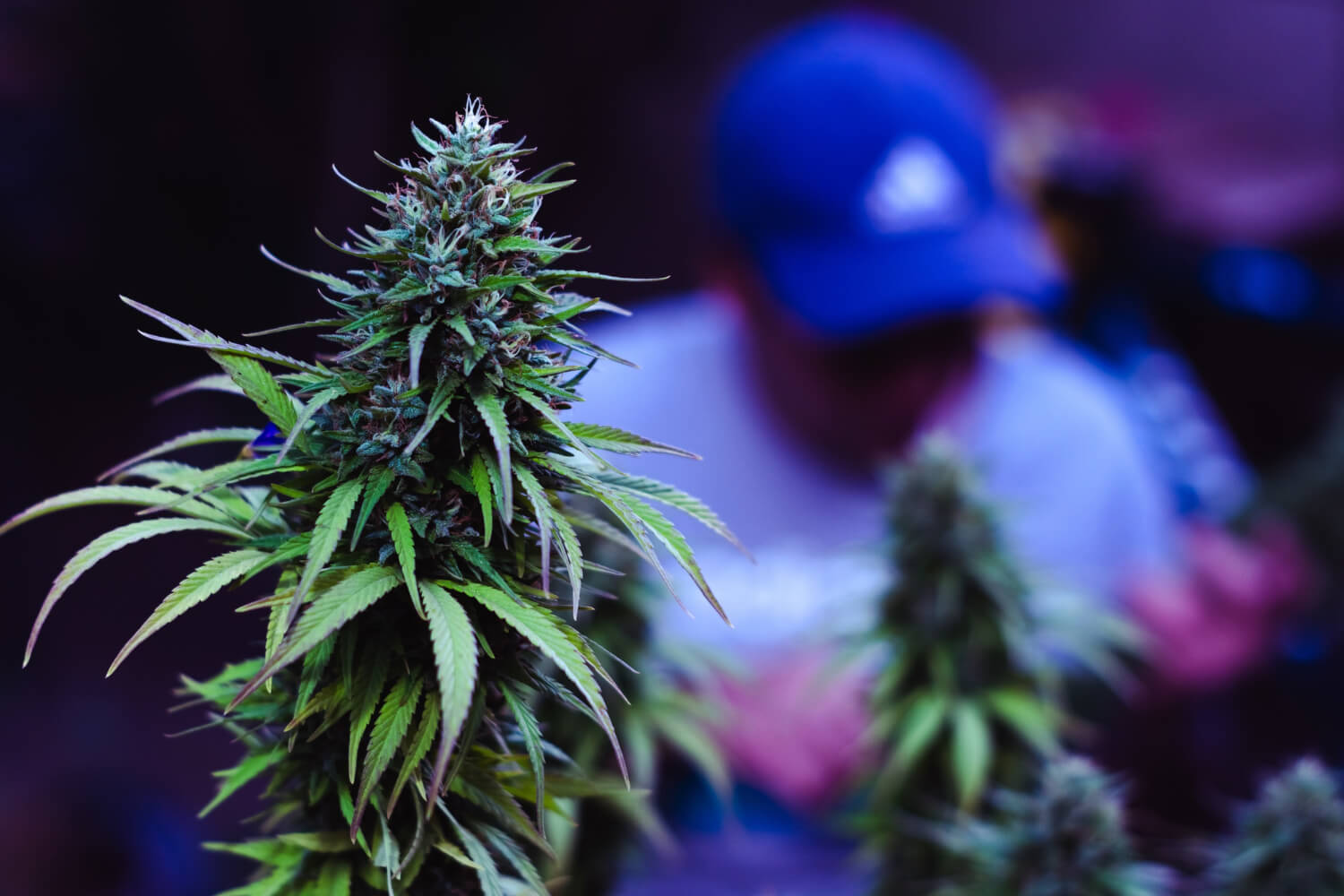High and still can't fall asleep? Possible causes
For many people, cannabis has a calming effect that is supposed to make it easier to fall asleep. However, sometimes the opposite happens: despite using it, it can be difficult to relax and fall asleep. Why does this occur? Several factors may play a role:
1. Dosage and strain: Different cannabis strains have different effects. Strains with high THC content are often stimulating, while those with more CBD usually promote relaxation. A high dose of THC can actually make it harder to fall asleep.
2. Tolerance and habituation: People who use cannabis regularly often develop a tolerance. The calming effects decrease, which can make it harder to fall asleep.
3. Timing of use: Using cannabis right before going to bed can lead to overstimulation for some people. Consuming it earlier, for example one to two hours before bedtime, may be more effective.
Cannabis for better sleep: Which strains and dosages help?
Choosing the right cannabis strain and the appropriate dosage plays a major role in achieving restful sleep. Strains with higher CBD content and moderate THC levels are often perceived as sleep-promoting, as they are less stimulating. Indica-dominant strains are generally better suited than Sativas because they promote deeper physical relaxation.
Tips for Better Sleep Quality with Cannabis
• Try low dosages: Often, less is more. A smaller amount can be relaxing without disrupting your sleep cycle.
• Choose the right consumption method: Some people prefer using oil or edibles, as these methods can provide longer-lasting but gentler effects.
• Establish regular sleep habits: Maintaining a consistent sleep schedule supports the effects of cannabis and promotes a healthy sleep structure.


Why cannabis can sometimes worsen sleep problems
Although cannabis has a relaxing effect for many people, it can actually worsen sleep problems under certain circumstances. This is often related to the following factors:
• THC-induced racing thoughts: THC can stimulate the brain and, especially at higher doses, lead to what is known as “racing thoughts,” where you get lost in your thoughts and find it difficult to fall asleep.
• Withdrawal symptoms: When cannabis is used regularly, stopping can lead to sleep disturbances. Some people experience vivid dreams or insomnia when they quit.
• Individual body chemistry: People react differently to cannabis. For some, it produces the desired relaxation, while others may feel more alert or restless.
What role does CBD play in falling asleep?
CBD is, alongside THC, the best-known cannabinoid in the cannabis plant and is often valued for its calming and anxiety-reducing properties. Unlike THC, CBD is not psychoactive and typically has a more relaxing than stimulating effect. It can help calm the mind and improve sleep quality.
Benefits of CBD for sleep:
• Anxiety reduction: CBD reduces feelings of anxiety that can disrupt sleep.
• Muscle relaxation: It relaxes the muscles and helps the body prepare for sleep.
• Sleep regulation: CBD can regulate the sleep cycle, contributing to better and more restful sleep.
The right time to consume cannabis before going to bed
A common mistake when using cannabis for sleep is timing. Consuming cannabis right before going to bed can actually impair sleep ability for some people. Here are some tips for timing:
• 1 to 2 hours beforehand: Taking a dose about one to two hours before bedtime can help reduce the stimulating effects of THC and make it easier to fall asleep.
• Start low and go slow: Begin with a small amount to test your individual response. Doses that are too high can actually reverse the sleep-promoting effect.
• Edibles vs. smoking: While smoking cannabis produces fast but shorter-lasting effects, edibles (such as cannabis gummies or oils) take longer to work but remain in your system for a longer period.

Cannabis and sleep phases: How does it affect REM and deep sleep?
Cannabis can affect the natural sleep cycle, especially the REM phase (Rapid Eye Movement), during which most dreaming occurs. THC tends to shorten the duration of the REM phase, resulting in less intense dreams. This can be beneficial for people with post-traumatic stress or nightmares, as it reduces dream activity.
Disadvantages of REM reduction:
• In the long term, a reduced REM phase may impair mental recovery.
• When stopping use, some people experience a “REM rebound” phase with vivid dreams.
Deep sleep: Cannabis, especially Indica strains, can promote deep sleep, which is important for physical recovery. Healthy deep sleep is essential for the body’s regeneration and for waking up refreshed in the morning.
Side effects and risks of using cannabis as a sleep aid
As with any sleep aid, cannabis also has potential side effects that should be considered. Some people are sensitive to cannabis and experience negative effects that can disrupt sleep:
• Dry mouth and throat: This can make sleeping less comfortable.
• Increased heart rate: THC can raise the heart rate, which may cause restlessness and trouble falling asleep in sensitive individuals.
• Daytime sleepiness: Consuming too much in the evening can lead to sleepiness the next day, especially with a high dose of THC.
Tips for naturally improving sleep without cannabis
There are many ways to naturally improve sleep without cannabis. Here are some tips for a better night’s rest:
• Regular sleep schedule: Go to bed and get up at the same time every day.
Relaxation exercises: Meditation, breathing exercises, or gentle stretching before bed can help calm the mind.
No screen time before bed: The blue light from smartphones and tablets can make it harder to fall asleep. Try to avoid electronic devices for at least an hour before bedtime.
Sleep-optimized environment: Make sure your bedroom is cool, dark, and quiet to prepare your body for sleep.


